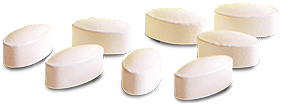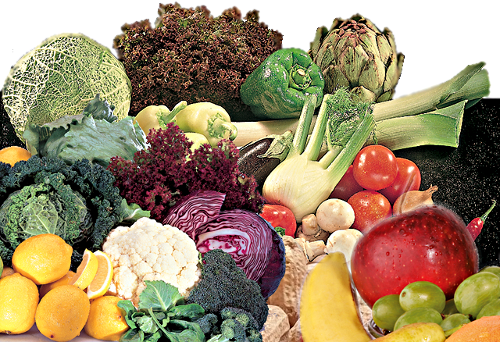Strong non-acidic Vitamin C - pharmaceutical-grade
- Strong vitamin C preparation
- 750 mg of vitamin C in each tablet
- Non-acidic vitamin C source (calcium ascorbate)
- Can be used by pregnant and lactating women
- Blister pack ensures that the vitamin C content is not damaged by oxygen and moisture
- Pharmaceutical-grade vitamin C
- Manufactured under Danish pharmaceutical control
| 1 tablet contains | % RDA* | ||
|---|---|---|---|
| Vitamin C | |||
| (as calcium ascorbate) | 750 mg | 938% |
* RDA: Recommended Daily Allowance
Product Facts
Directions
1 tablet daily unless advised otherwise. Preferably take the tablets whole and after a meal.
Do not exceed the recommended daily dosage.
Dietary supplements should not replace a varied diet.
A healthy lifestyle and a varied diet are important for maintaining good health.
Suitable for vegetarians and vegans.
Ingredients
Vitamin C (calcium-L-ascorbate),
bulking agent: microcrystalline cellulose,
anti-caking agent: magnesium salts of fatty acids,
glazing agent: calcium carbonate,
anti-caking agent: silicon dioxide,
glazing agent: hydroxypropyl methylcellulose.
Storage
Dark, dry and at room temperature.
Keep out of reach of young children.
What is Bio-C-Vitamin?
 Bio-C-vitamin contains film-coated tablet with 750 mg of vitamin C in the form of calcium ascorbate. As the tablet does not contain any animal ingredients, it is suitable for vegetarians and vegans. The product is a pharmaceutical-grade vitamin C supplement.
Bio-C-vitamin contains film-coated tablet with 750 mg of vitamin C in the form of calcium ascorbate. As the tablet does not contain any animal ingredients, it is suitable for vegetarians and vegans. The product is a pharmaceutical-grade vitamin C supplement.
Non-acidic vitamin C source
Bio-C-Vitamin contains a non-acidic vitamin C source to protect sensitive stomachs. In order to achieve this, vitamin C is bound to calcium in a non-acidic chemical compound named calcium ascorbate. Calcium ascorbate is a calcium salt of ascorbic acid, a molecule made up of ascorbic acid and calcium. Calcium ascorbate works just like vitamin C but has no acid effect.
You don't have to take Bio-C-vitamin with a meal. Still, vitamin C in the diet never appears in isolation but is always accompanied by a number of other nutrients and flavonoids. Therefore, it may be a good idea to combine the supplement with one of the day's main meals.
Pregnancy and lactation
Bio-C-Vitamin may be used by pregnant and breastfeeding women.
What is vitamin C?
Vitamin C is a water-soluble vitamin and an important antioxidant. Because vitamin is water-soluble, our body does not store large quantities of it and we therefore depend on a regular vitamin C intake from or diet or from supplements. Vitamin C protects proteins, lipids (fats), carbohydrates, and nucleic acids such as DNA and RNA against damage from the free radicals and reactive oxygen species (ROS). Free radicals are formed as a natural part of the body's metabolic processes and when we are exposed to pollution in the form of chemical substances in the environment, including tobacco smoke.
Mammals produce their own vitamin C
Almost all mammals are able to synthesize vitamin C in their adrenal glands through an enzymatic conversion of glucose. In these animals, vitamin C serves as a hormone. Humans, however, have lost the ability to synthesize vitamin C as a result of evolutionary changes. We need the vitamin from external sources.
The body's immune cells usually contain lots of vitamin C, and vitamin C supports normal immune functioning in different ways.
Vitamin C also supports normal functioning of the nervous system. The nerve cells in the body's central nervous system contain very high concentrations of vitamin C. Here, vitamin C has a wide range of functions such as antioxidant protection and the formation of peptides and myelin, which is a protective layer of fat that surrounds the nerve cells to improve their function. Vitamin C also protects the nerve cells against a substance named glutamate. Elevated glutamate levels can damage the nerve cells.
Vitamin C is part of the body's normal energy metabolism, as it contributes to the formation of carnitine, an amino that is an essential co-factor in the transport of long-chained fatty acids into the cells' energy-producing mitochondria. In this way, vitamin C helps to reduce fatigue and tiredness.
Vitamin C contributes to normal production of collagen in the body. Collagen is made up of protein and is found in skin, mucous membranes, bones, tendons, blood vessels, connective tissue, and hair cells. About one-third of the body's protein consists of collagen.
Vitamin C increases the bioavailability of iron from food by increasing intestinal uptake of non-heme iron. Non-heme iron come from plants, while heme-iron comes from meat and fish.
Vitamin C helps repair the lipid-soluble vitamin E that has been destroyed during its task of protecting fats in the body to oxygen exposure (rancidification). Afterwards, vitamin E can function normally again.
The best dietary sources of vitamin C
 Vitamin C is found in generous amounts in fruits, berries and vegetables. Among foods with the highest content of vitamin C we find rose hips, sea buckthorn, peppers, parsley and cabbage, especially kale. Vitamin C is broken down by heat, light, and oxygen.
Vitamin C is found in generous amounts in fruits, berries and vegetables. Among foods with the highest content of vitamin C we find rose hips, sea buckthorn, peppers, parsley and cabbage, especially kale. Vitamin C is broken down by heat, light, and oxygen.
Official claims
The European Food Safety Authority (EFSA) has evaluated the evidence behind vitamin C and has acknowledged the following claims:
- Contributes to the reduction of tiredness and fatigue
- Contributes to the protection of cells from oxidative stress
- Contributes to normal functioning of the immune system
- Contributes to normal functioning of the nervous system
- Contributes to normal collagen formation for normal functioning of the blood vessels
- Contributes to normal collagen formation for normal bone function
- Contributes to normal collagen formation for normal cartilage function
- Contributes to normal collagen formation for normal gums
- Contributes to normal collagen formation for normal skin function
- Contributes to normal collagen formation for normal teeth
- Contributes to normal energy-yielding metabolism
- Contributes to normal psychological functions
- Contributes to the regeneration of the reduced form of vitamin E
- Increases iron absorption
- Contributes to the maintenance of normal functioning of the immune system during and after intense physical exercise*
*The beneficial effect is obtained with a daily intake of 200 mg in addition to the recommended daily intake of vitamin C

